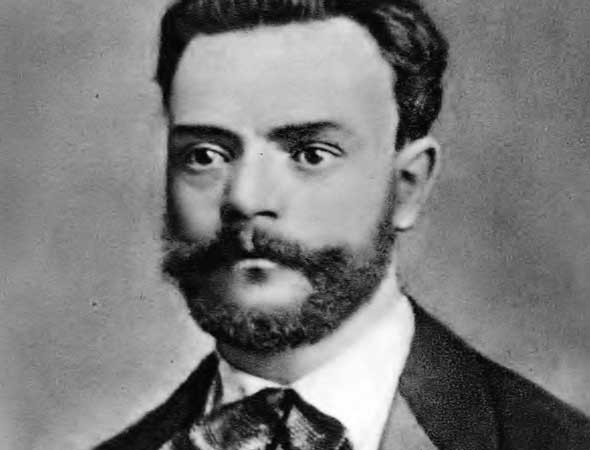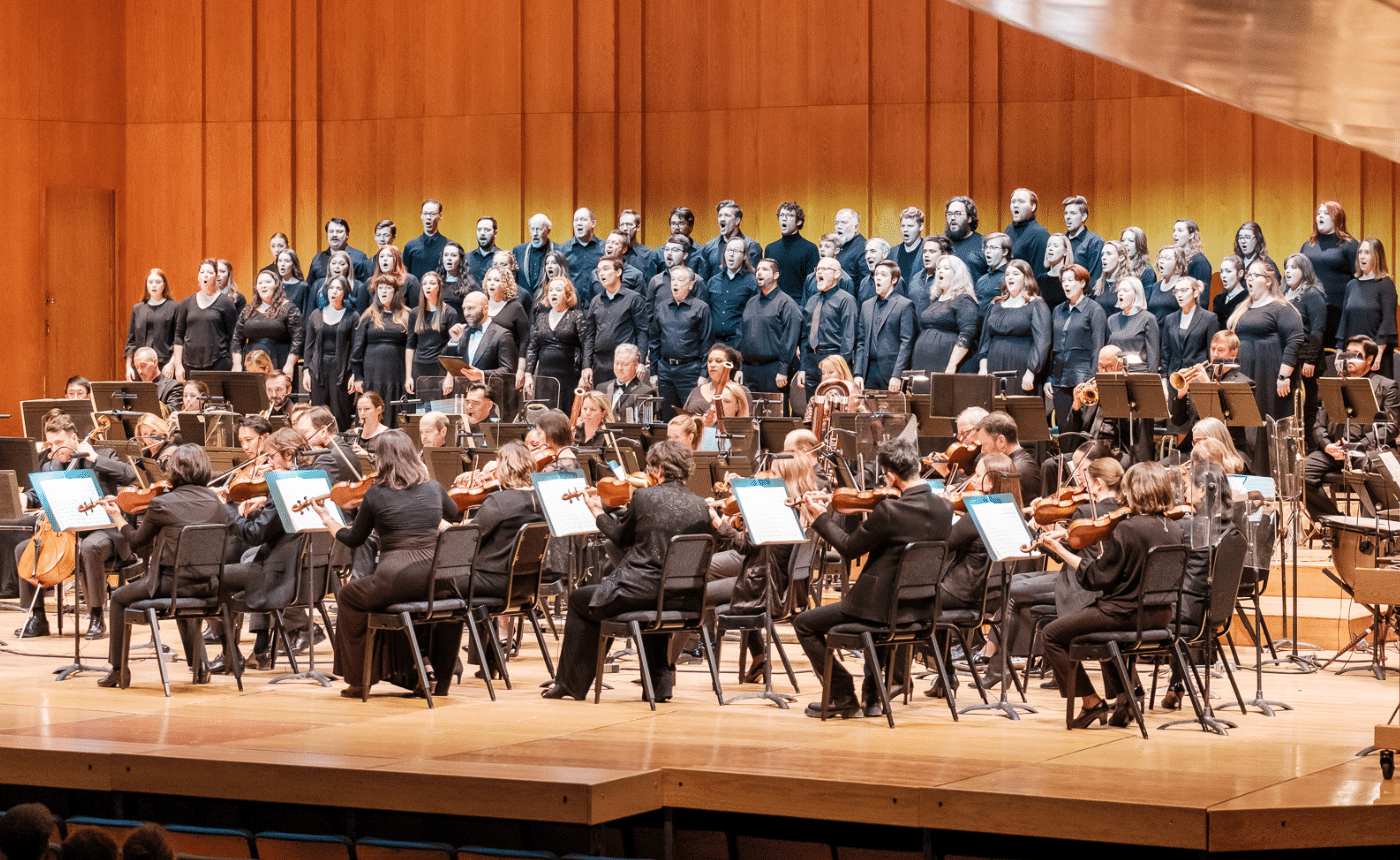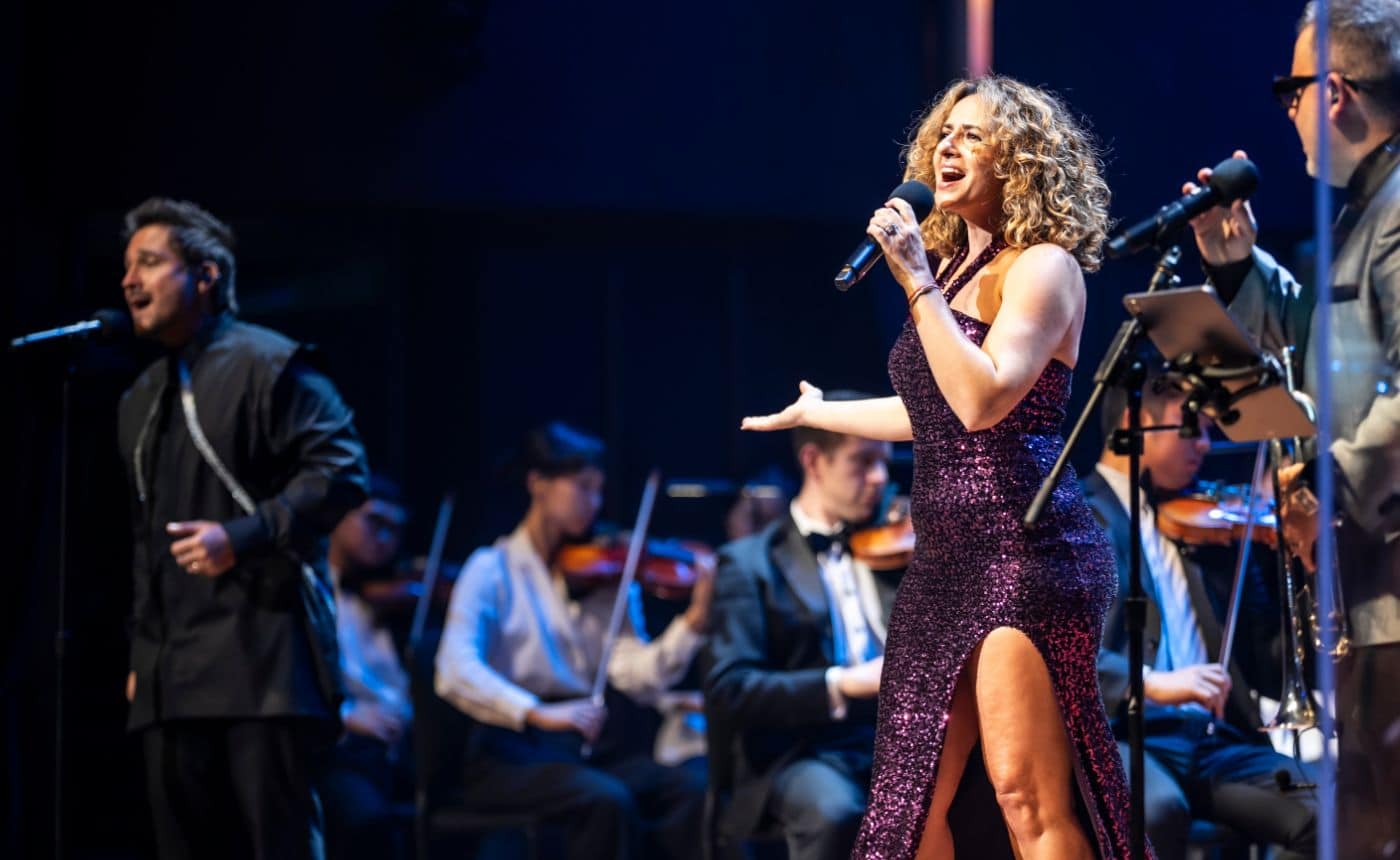DVOŘÁK: Violin Concerto
by Jeff Counts
THE COMPOSER – ANTONÍN DVOŘÁK (1841-1904) – Dvořák was beginning to experience the successes and pressures of international celebrity in the late 1870s. Requests for new works were pouring in from abroad and this heightened profile did not escape notice back home in Bohemia. Dvořák soon became the go-to composer for important events in Prague and he eventually followed the footsteps of Smetana as musician chairman of the Artistic Society there. Whenever the political niceties of Czech notoriety weren’t taking too much of his time, he focused on opera and produced beloved works like The Peasant and the Rogue and Dmitry that would be performed dozens of times during his lifetime.

THE HISTORY – In the midst of all this feverish activity, Dvořák met Hungarian violinist Joseph Joachim in 1878. Joachim, much like their mutual friend Brahms, would in time become an ardent supporter of the Czech’s composer’s music, though that might not have seemed likely at first.
Shortly after they met, Dvořák’s publisher Fritz Simrock, not one to let a budding friendship like this go to waste, suggested a concerto collaboration with Joachim. Dvořák agreed and set to work the following year. Joachim was notoriously uninhibited in his critique when presented with a new concerto and Dvořák was not spared in 1879 when he brought his fledgling work before the master. An initial round of necessary revisions soon followed and Dvořák re-submitted what he characterized to Simrock as an essentially new concerto in 1880. After they finally met again in 1882, Dvořák left the read-through convinced that Joachim was now happy enough to proceed, but it was not to be. The concerto would wisely maintain the original dedication to Joachim, but he never did perform it. If Dvořák was frustrated and a bit put off by Joachim’s continued disapprovals, nobody would fault him, but he did reluctantly revise the piece one more time after the 1882 session. This last effort reportedly got a bit closer to realizing Joachim’s wishes for the piece, but going back to him with it was not an option. So, Dvořák chose another violinist for the 1883 premiere in Prague. This was the young Czech virtuoso Frantisek Ondrícek. Ondrícek also performed the concerto in Vienna and London and his efforts did much to fuel Dvořák’s rise in prominence throughout Europe. Dvořák’s highly individual approach to the concerto form was perhaps at the root of Joachim’s reticence but 19th century audiences were not so particular. They found something quite charming in Dvořák’s Bohemian-infused individuality. It is rarely presented today, relatively speaking, but the A Minor Concerto was nearly as popular as Beethoven’s in its time.
THE WORLD – Elsewhere in 1879, Albert Einstein was born, as was English author E. M. Forster, the Treaty of Gandamak was signed, pausing in the hostilities of the Second Anglo-Afghan War, and Edison patented his light bulb.
THE CONNECTION – Dvořák’s Violin Concerto is infrequently performed by the Utah Symphony. It was programmed most recently in January 2018. Hilary Hahn was soloist under Thierry Fischer.











